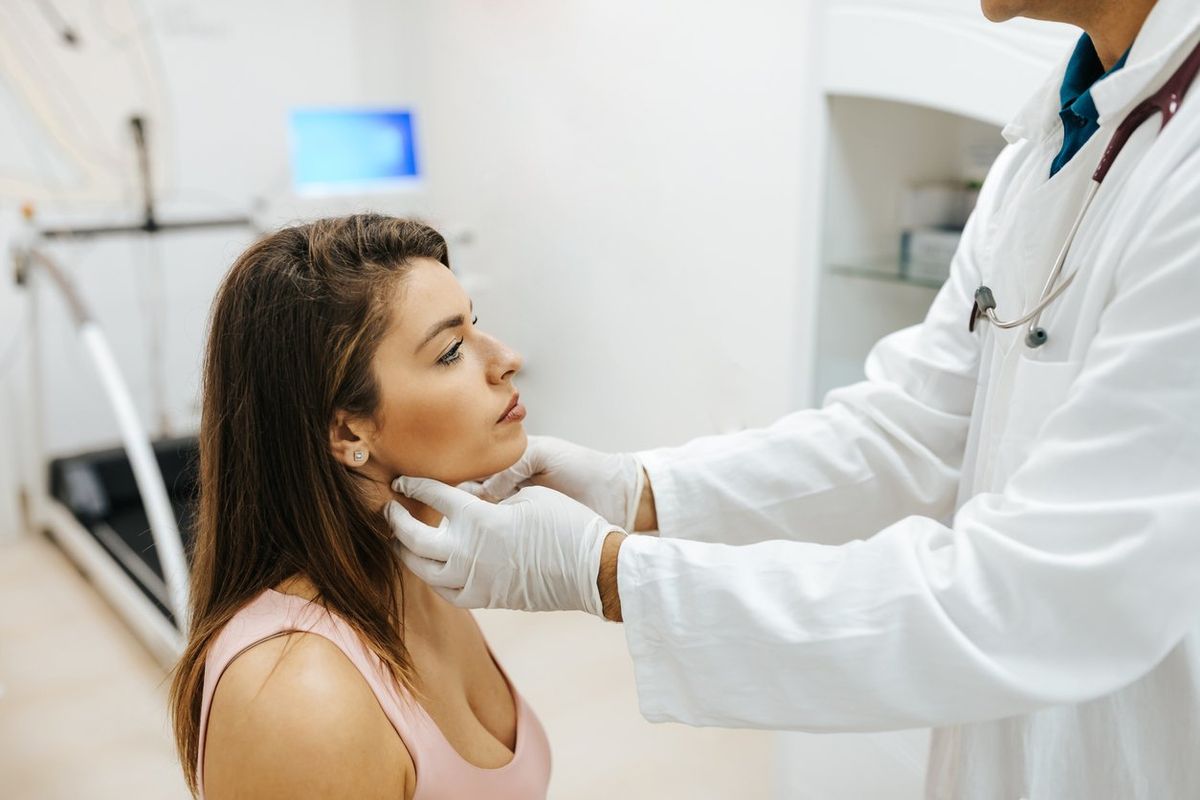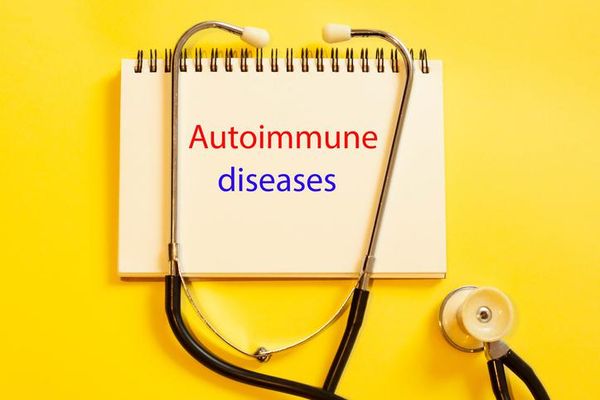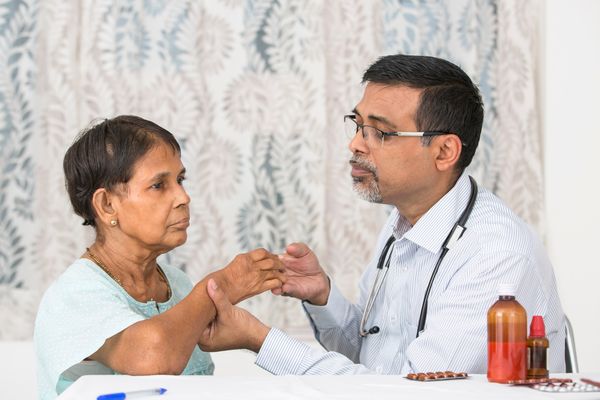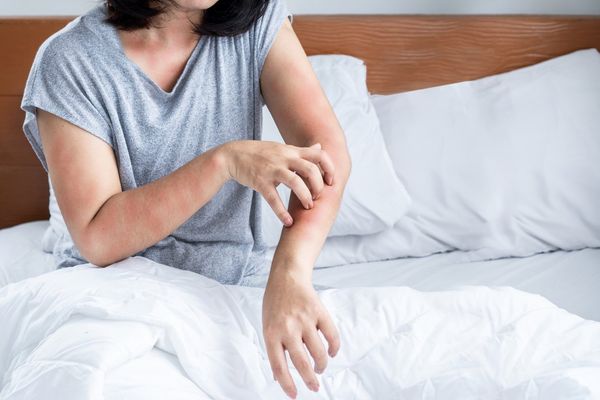I was on a morning walk getting my steps in when I passed a car window and my reflection stopped me in my tracks.
My face was pale, puffy and round, shining like the moon in the early rays of the sun. My hands flew to my neck, which looked swollen. I felt around, nothing hurt, but I knew this wasn’t just an unflattering angle. Something was wrong.
Sure enough, a blood test confirmed that I had Hashimoto’s disease, a condition that affects the production of thyroid hormones, which can have a negative impact on pretty much all of your organs. Even your brain. And I had the common signs: problems remembering simple things, weight gain, zapped energy and a strong sensitivity to cold temperatures. (I wore hoodies everywhere in Dallas. In August.)
Read: Hashimoto’s Disease Brought the Curtain Down on My Career As a Soloist in the NYC Ballet >>
Hashimoto’s disease affects a lot of people — about 5 in 100 people in the U.S. have it — but the disorder usually progresses slowly and not everyone has the same symptoms. And more women are diagnosed with Hashimoto’s disease than men. Here’s more on what you need to know about this common condition.
What is Hashimoto’s disease?
Hashimoto’s thyroiditis, also called Hashimoto’s disease, is a chronic autoimmune disease that affects your thyroid, the small gland in your neck responsible for controlling thyroid hormones and the speed of your metabolism (how your body turns food into energy).
People with Hashimoto’s can’t produce enough thyroid hormone, which causes your metabolism to slow down, called hypothyroidism. And that affects all organs in your body, including your brain and your heart.
What causes Hashimoto’s disease?
The exact cause of Hashimoto’s disease is unknown. But Hashimoto’s is an autoimmune disease, so we know the immune system makes antibodies that attack your thyroid by mistake. This causes the thyroid to produce fewer hormones than your body needs.
Possible causes for Hashimoto’s disease include:
- Exposure to radiation
- Genetics
- Viruses/infection
- Stress
Your sex also plays a big role in who gets Hashimoto’s disease.
Why are women more likely to get Hashimoto’s disease?
People assigned female at birth (AFAB) are up to 10 times more likely to develop Hashimoto’s disease. Researchers are still not exactly sure why, but one reason may be because women experience more hormonal changes throughout life than men.
What are the risk factors for Hashimoto’s?
You may have an increased risk for developing Hashimoto’s disease if you:
- Have a family history of Hashimoto’s or other thyroid conditions
- Are 30 years or older
- Recently had a baby
- Eat foods rich in iodine (cod, seaweed, eggs)
If you have any other autoimmune disease, you’re more likely to develop Hashimoto’s disease. These conditions include:
- Celiac disease
- Lupus
- Addison’s disease
- Rheumatoid arthritis
- Type 1 diabetes
- Sjogren’s syndrome
- Pernicious anemia
What are symptoms of Hashimoto’s disease?
You may have no symptoms of Hashimoto’s disease for many years, but symptoms usually get gradually worse over time. The most common Hashimoto’s disease symptoms include:
- A bump or bulge toward the bottom of your neck (goiter)
- Tiredness
- Constipation
- Weight gain
- Depression
- Weak muscles
- Dry skin
- Infertility
- Puffy and pale face
- Hair loss
- Heavy periods
- Sensitivity to cold temperatures
- Memory problems
- Slow heart rate
- Decreased sex drive
How is Hashimoto’s disease diagnosed?
To check you for Hashimoto’s disease, your healthcare provider (HCP) will go over your medical history, perform a physical exam including your neck and request bloodwork to check your thyroid hormones. Blood tests include:
- Thyroid stimulating hormone (TSH). High levels mean you have hypothyroidism.
- Thyroxine (T4). Low thyroxine means a problem with your thyroid.
- Antibody test. People with Hashimoto’s will usually have thyroid peroxidase (TPO) antibodies in the blood.
Other tests like a thyroid ultrasound may also be needed to check your thyroid.
Read: Fast Facts: Everything You Need to Know About the Thyroid >>
If left untreated, Hashimoto’s disease that develops into hypothyroidism can lead to serious health problems, including high blood pressure, high cholesterol and heart disease. Hypothyroidism can also disrupt ovulation and lead to infertility if not treated.
What are Hashimoto’s disease treatment options?
Some people have Hashimoto’s disease that does not develop into hypothyroidism. This means your HCP can monitor your thyroid levels through routine bloodwork, and no medication is needed.
But most people with Hashimoto’s disease will develop hypothyroidism and take T-4 hormone replacement medication to treat it.
The synthetic hormone, called levothyroxine, is taken by pill once a day (usually in the morning on an empty stomach) and acts as the T-4 hormone that your thyroid would produce naturally.
Some people with Hashimoto’s disease may also need a synthetic T-3 hormone if symptoms do not improve with levothyroxine.
It’s important to note that these medications can take a long time to start working — up to eight weeks — so if you think you have Hashimoto’s disease, talk to your HCP as soon as possible. I’m glad I did.
- 5 Common Autoimmune Diseases That Affect Women ›
- 15 Things Your Thyroid Can Affect ›
- Fast Facts: Everything You Need to Know About the Thyroid ›
- I Lost My Singing Career to Thyroid Cancer — And Found My True Voice ›
- Hashimoto’s Disease Brought the Curtain Down on My Career As a Soloist in the NYC Ballet ›
- Tichina’s Most Important Role - HealthyWomen ›
- Hypothyroidism Caused Problems for My Body and Mind - HealthyWomen ›
- Women and Autoimmune Disease - HealthyWomen ›







